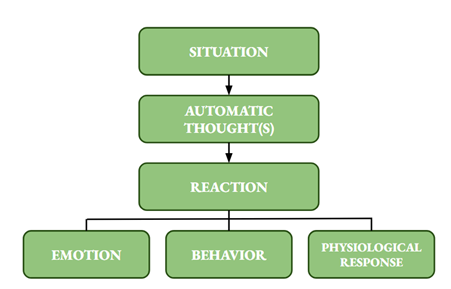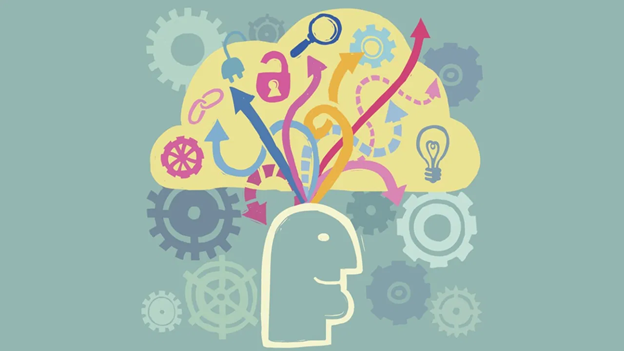Cognitive Behavioral Therapy, founded by Dr. Aaron Beck, has been scientifically tested and found to be effective in more than 2,000 studies for the treatment of many different health and mental health conditions (Beck, 2020). The cognitive model describes how people’s thoughts and aspects influence the way they feel and behave. The cognitive model plays an imperative role in helping therapists conceptualize and treat their clients’ difficulties.

The Cognitive Model
Typically the steps included in CBT includes:
● Identifying concerning situations in your life.
● Becoming conscious of your thoughts, emotions, and beliefs regarding these situations.
● Gaining a better understanding of the behavior and motive of others.
● Identifying negative or inaccurate thinking patterns.
● Reshaping those negative or inaccurate thoughts.
● Learning to develop a greater sense of confidence in one’s self.
Cognitive behavioral therapy can be good for anyone who needs support in challenging negative thoughts that are stopping them from living the life they want to live. A medical diagnosis is not required to benefit from this therapy. CBT is useful for those who experience:
● Anxiety
● Depression
● Low self-esteem
● Irrational fears
● Eating disorders
● Insomnia
Cognitive behavioral therapy may not be for everybody. CBT aims to help individuals learn to be their own therapists. It requires you to actively participate in treatment & have an open and honest relationship with your therapist. CBT is also seen as a short-term psychotherapy, however, it may take a few sessions before you see improvement due to confronting your past & current conflicts during the initial part of therapy.

Cognitive behavioral therapy will include different exercises in the session as well as additional homework outside of the sessions. Through this, clients are aided to develop coping skills, where they’re able to learn how to change their own thinking, problematic emotions, and behavior.
If you’re interested in learning more about CBT, please consider your personal preferences regarding your sessions - would you value face-to-face or telehealth sessions more? Also, be prepared to answer questions about what has brought you to begin therapy, your concerns, and your history.
Association of Behavioral and Cognitive Therapies
References:
J. Beck (2020) Cognitive Behavior Therapy: Basics and Beyond, 3rd edition
https://beckinstitute.org/about/intro-to-cbt/
American Psychology Association (2017) What is Cognitive Behavioral Therapy? https://www.apa.org/ptsd-guideline/patients-and-families/cognitive-behavioral
~~~~~~~~~~~~~~~~~~~~~~~~~~~~~~~~~~~~~~~~~~~~~~~~~~~~~~~~~~~~~~~~~~~~~~~~~~~~~~~~
Kiana Streater
Administrative & Social Media Assistant
Holleigh Woodward, LPC
Licensed Professional Counselor
